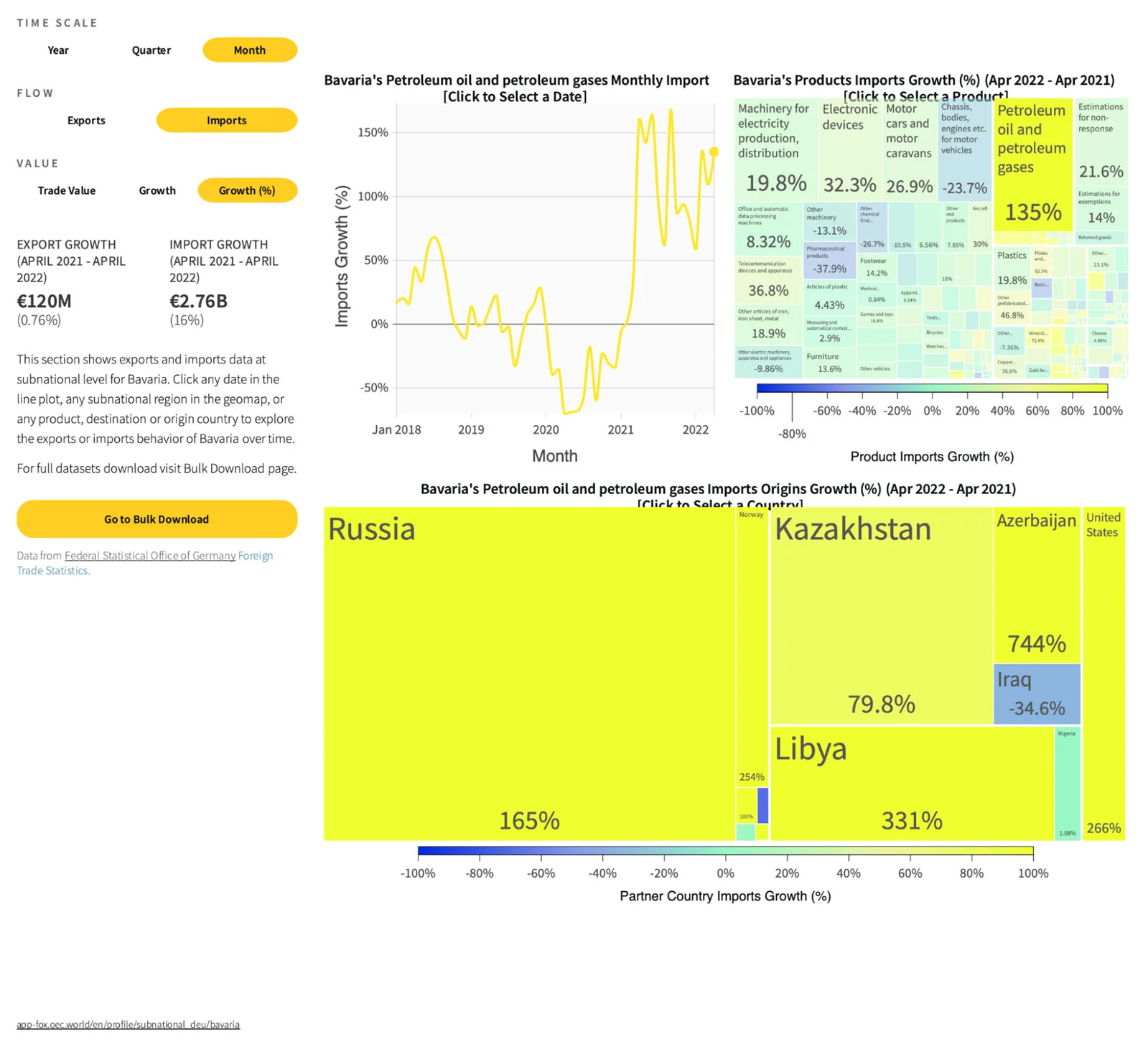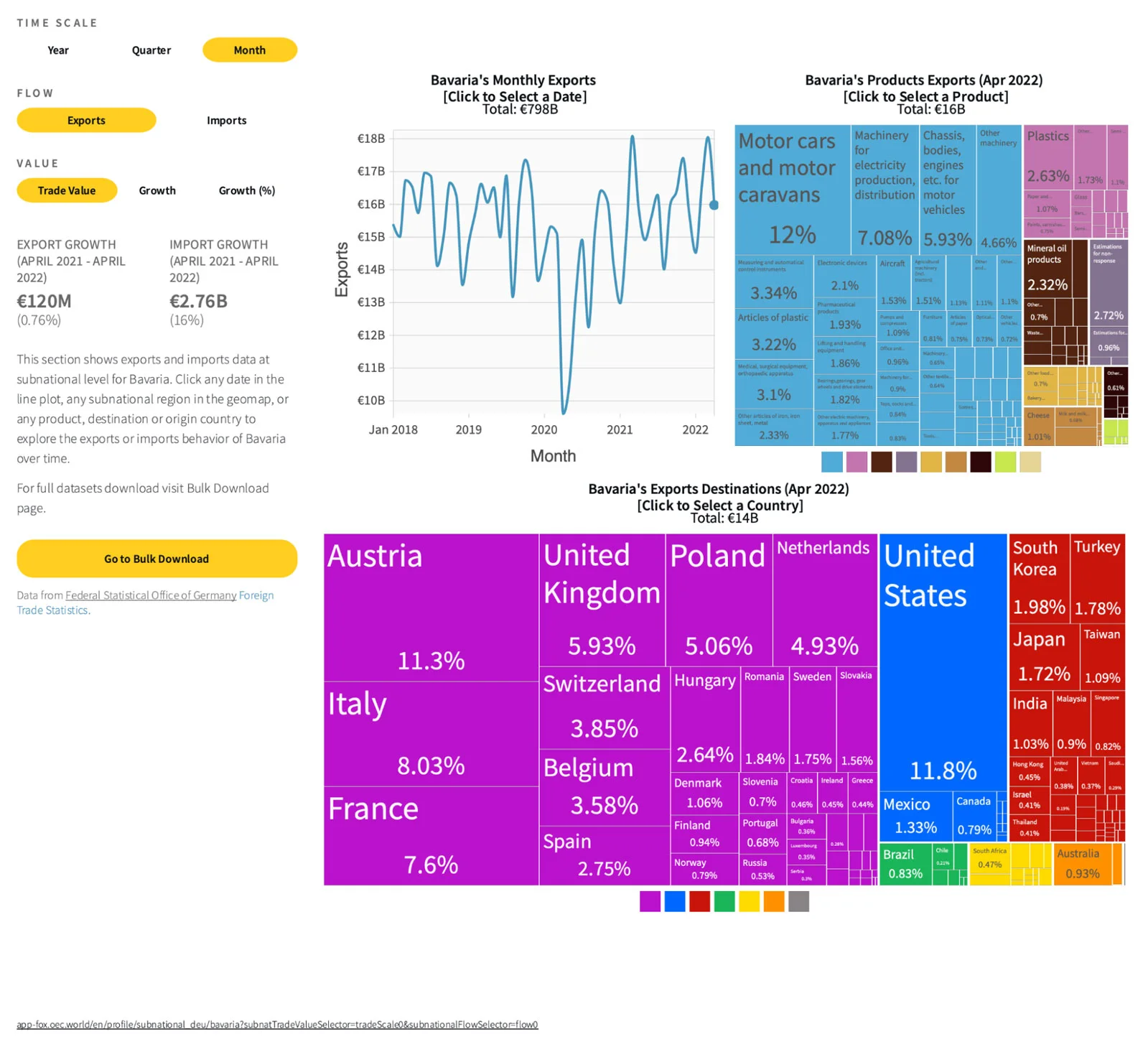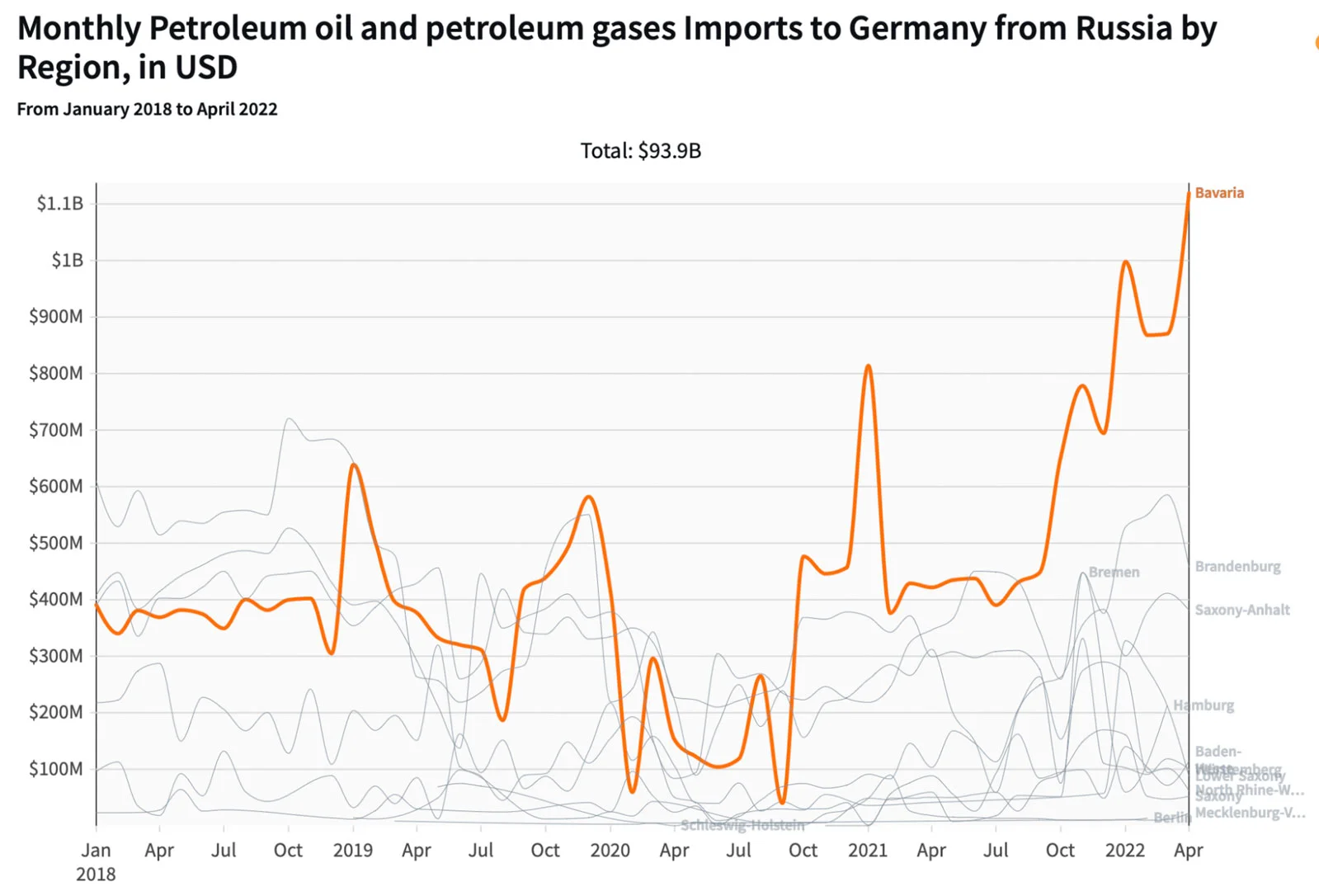Bavaria's Dependency on Russian Gas Runs Deep
In 1970, West Germany and the Soviet Union signed a contract for a gas pipeline connecting Siberia to Bavaria. Today, Russia supplies more than half of Germany's natural gas, roughly half of its coal, and a third of its oil.
As Germany tries to decouple its economy from Russian gas, it must build terminals and ports. This is critical for Bavaria, the home of Audi, BMW, and Adidas, an economic juggernaut with a gross domestic product that puts it ahead of 22 of the 28 EU member states. But all of this manufacturing complexity depends on foreign energy. In 2021, almost half of Bavaria's gas and oil imports came from Russia. During the last year, Bavaria's gas and oil imports increased by 135%, from $834M to $1.96B.
Two months into the conflict, Bavaria continues to import large amounts of Russian energy. In April, Bavaria's gas and oil imports Imports reached $1.12B (€1.01B), a growth of ↑ $249M (28.6%) compared to April 2021 (↑ $697M (165%) in one year, ↑ $967M (636%) in two years).
A sudden cool-down due to gas supply shortages will disrupt essential value chains in Bavaria. Bavarian industries are developing contingency plans, such as switching to oil, coal, or renewables. These transitions take time and investment. If the gas supply from Russia stops, production could collapse.
The war in Ukraine has Germany reflecting on its dependency on Russian energy. While the chancellor said Germany would wean itself off Russian energy soon, Bavaria is the region that may pay the highest price.
A study by the University of Mannheim shows that the repercussions of a gas cut could be much more dramatic than the 2008 financial crisis or the COVID-19 pandemic. An energy shock would strike at the core of German industry. Regarding natural gas, there are significant time constraints and risks in replacing Russian natural gas imports with imports from other countries and with alternative energy sources. But the dangers go beyond the largest State of Germany. The E.U. economy is so integrated that a blow to one nation is a blow to all. That is especially true since Germany's most immediately vulnerable state, Bavaria, is a European economic powerhouse.



